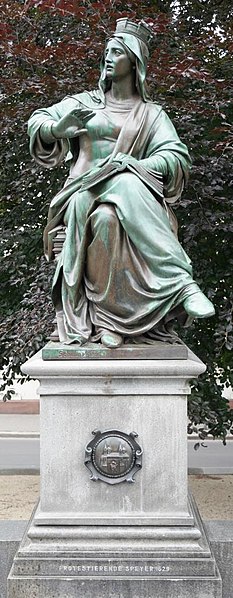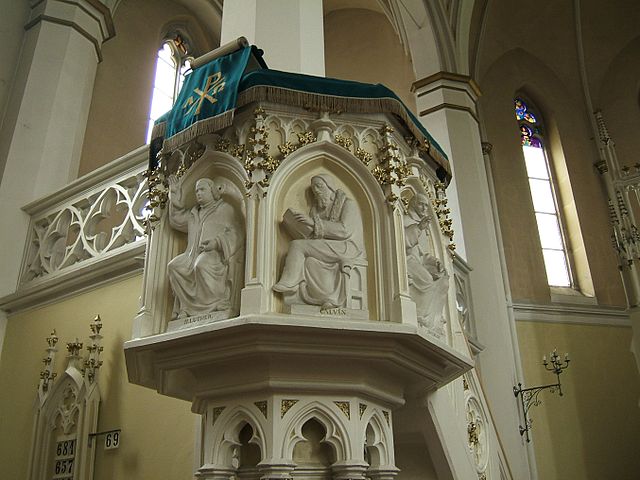John Wycliffe was an English scholastic philosopher, theologian, purported biblical translator, reformer, Catholic priest, and a seminary professor at the University of Oxford. He became an influential dissident within the Catholic priesthood during the 14th century and is considered an important predecessor to Protestantism. Wycliffe questioned the privileged status of the clergy, who had bolstered their powerful role in England, and advocated radical poverty of the clergy.
Portrait by Thomas Kirkby, c. 1828
Wyclif Giving 'The Poor Priests' His Translation of the Bible by William Frederick Yeames, published before 1923.
Portrait of John Wycliffe by Bernard Picart, showing the burning of his works (1714)
Burning Wycliffe's bones, from Foxe's Book of Martyrs (1563)
Protestantism is a branch of Christianity that emphasizes justification by God through faith alone, the teaching that salvation comes by unmerited divine grace, the priesthood of all believers, and the Bible as the sole infallible source of authority for Christian faith and practice. The five solae summarize the basic theological beliefs of mainstream Protestantism.
The door to All Saints' Church in Wittenberg, where Martin Luther allegedly posted his Ninety-five Theses in 1517 detailing his concerns with what he saw as the Catholic Church's abuse and corruption. The Ninety-five Theses gave rise to Christian Protestantism as one of the world's primary religions, making Wittenberg the "cradle of Protestantism".
Memorial Church, finished and consecrated 1904, in Speyer, Germany commemorates the Protestation.
The Protesting Speyer, part of the Luther Monument in Worms, Germany
Two central figures of the Protestant Reformation, Martin Luther and John Calvin, depicted on a church pulpit; both Luther and Calvin emphasized making preaching a centerpiece of worship.








